This evening, they have decided to meet up at their school to devise together the project for a stage show whose theme – or pretext – is the city of Strasbourg itself.
But they soon come up against a number of problems. What story should they tell? How should they build it up? How is it possible to stage a show without the back-up of a text and characters that already exist? How can they pool the different elements that each one of them has gathered on the city? How can they transfigure reality to bring fiction to life? And how can they work together – all fifteen of them! – when they have decided to do without the exterior gaze of a director?
All these questions incite each one of them to talk about his or her relationship with the city, politics, utopia, the theatre…
And all these questions reflect – as in a mirror – the director’s own approach in a film that candidly sets off in search of its own subject…
At dawn, nothing has changed or almost.
Who knows?
With the students of the 30th class of the Théâtre National de Strasbourg
Photography Katell Djian • Camera Nicolas Philibert • Sound Julien Cloquet, with Olivier Grandjean • Gaffer Olivier Régent • Editing Nicolas Philibert and Guy Lecorne • Original score Philippe Hersant • Director’s assistant Dominique Perrier • Production management Gisèle Courcoux, with Cécile Bergès • Line producer Gilles Sandoz • Coproduced by Agat Films & Cie, La Sept ARTE (Pierre Chevalier), Théâtre National de Strasbourg (direction Jean-Louis Martinelli) • With the participation of Centre National de la Cinématographie, the Urban Communitiy of Strasbourg and the Regional Council of Alsace.
First TV broadcast: ARTE, may 1999 • French theatrical release : september 1999
When I was asked to make a film with the students of the 30th class of the Strasbourg National Stage School, after Pascale Ferran and Cédric Kahn (1), I didn’t hesitate for long: this was an opportunity to tackle something new, if only because I would be working with actors for the very first time. The opportunity was even more exciting because I was free to work as I chose… as long as I treated all the students in the class equally.
Since this notion for “equality” turned out to be fairly difficult to deal with – there were fifteen of them after all! – I quickly decided to make their group the subject of the film; besides, at my very first meeting with them, I had been struck by the collective spirit that inhabited them. Recruited two years earlier following a highly selective entrance exam, they hadn’t chosen each other but, as one of them said, they had gradually learned to “breathe, work and grow together”. This led to a feeling of identity that of course did not exclude tension and sudden outbursts but which revealed itself in all situations through an extreme attention towards each other. You could view this as a convenient way of protecting themselves from the outside world but that didn’t matter! The energy that they put into preserving the unity of their group had something touching about it. As a result, I asked them all to be present together, every day, on the set.
Instead of putting together a detailed screenplay with written dialogue and characters that the students would simply need to perform, I wanted to give this shooting a highly improvised character, based on a theme that could be summed up in a few lines: the film would tell the story of a long night during which they would try to lay down the foundations of a (future) show on Strasbourg. Of course, “Strasbourg” was a pretext much more than an end in itself, the “source” from which they could freely draw the material (documentary or fictional) that would allow them to express their view of the world.
And so I was soon going to be filming fifteen apprentice actors and stage designers struggling with all kinds of questions; questions that they would ask themselves with a blend of seriousness and candour, lightness and intensity: how can fiction be brought to life from the realities around us? Can fiction take possession of history, in particular the darkest pages of the past (reference would be made to the Struthof concentration camp in the Vosges)? And also: what is a “character”? How can one work without the back-up of a pre-existing text and without a director or an exterior eye? How can one pool fifteen extremely diverse suggestions? Can a show change the audience’s way of seeing things?
But, even though the city of Strasbourg was just a pretext, they had to “get down” to it! And so, as shooting approached, I asked each of them to think (individually, without consulting the others) about what this show could be, to imagine its artistic choices, the possible characters and sets, but also to research the city, its history and geography, cultural traditions, community life, industries, the European institutions that it houses… or even its soccer club, street sweepers, hop breweries, cross-border workers, unemployed, and whatever else crossed their minds… and, in doing so, to collect testimony, accounts, writings, legends, photos, drawings, statistics and any other element that could go into the project.
And so, during the first days of shooting, each one would make his or her personal suggestions to the others; and then they would try to fit them all together…
1) Pascale Ferran: L’Age des possibles (1995), with the students of the 28th class; Cédric Kahn: Culpabilité zéro (1996) with the students of the “29 th group”.
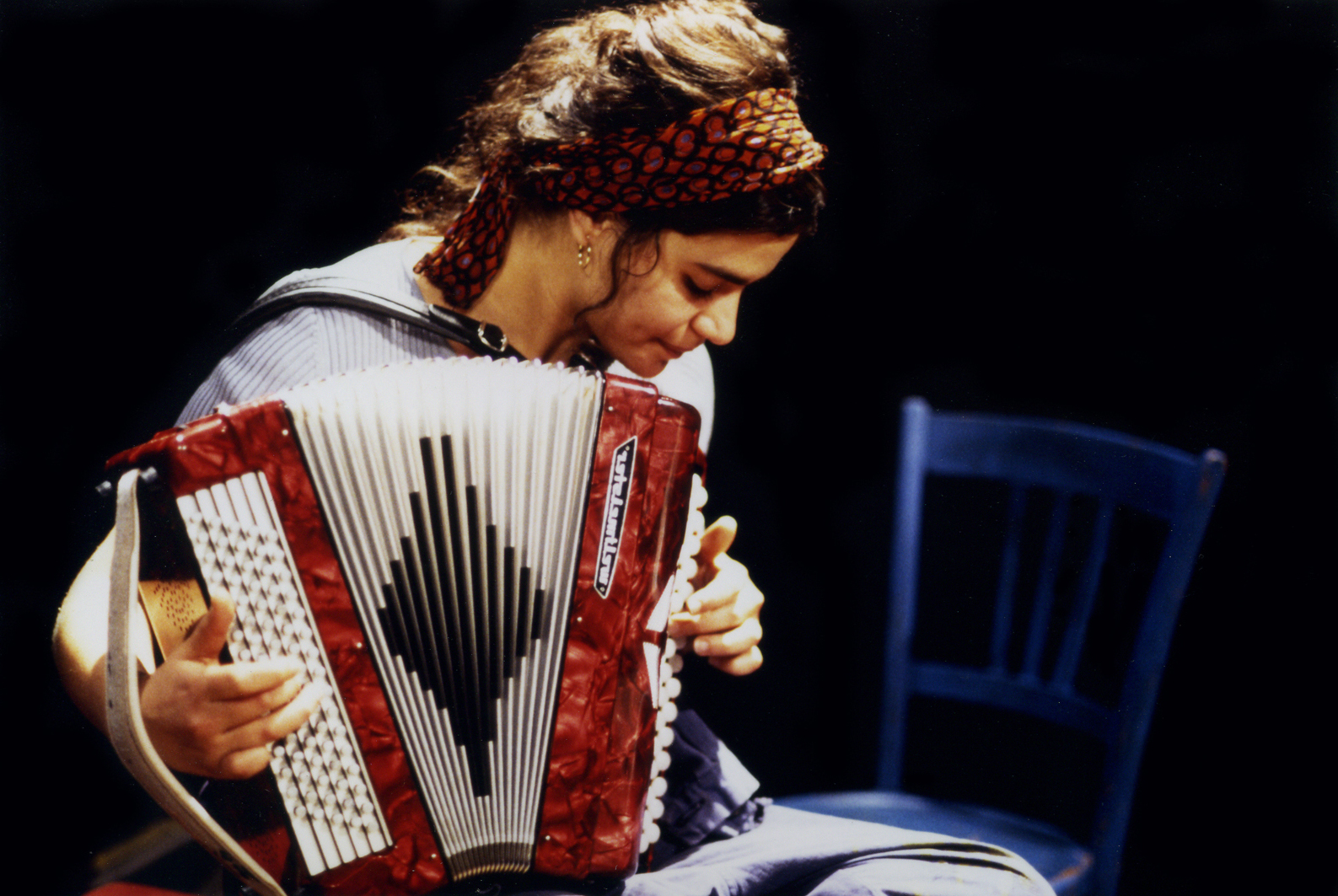
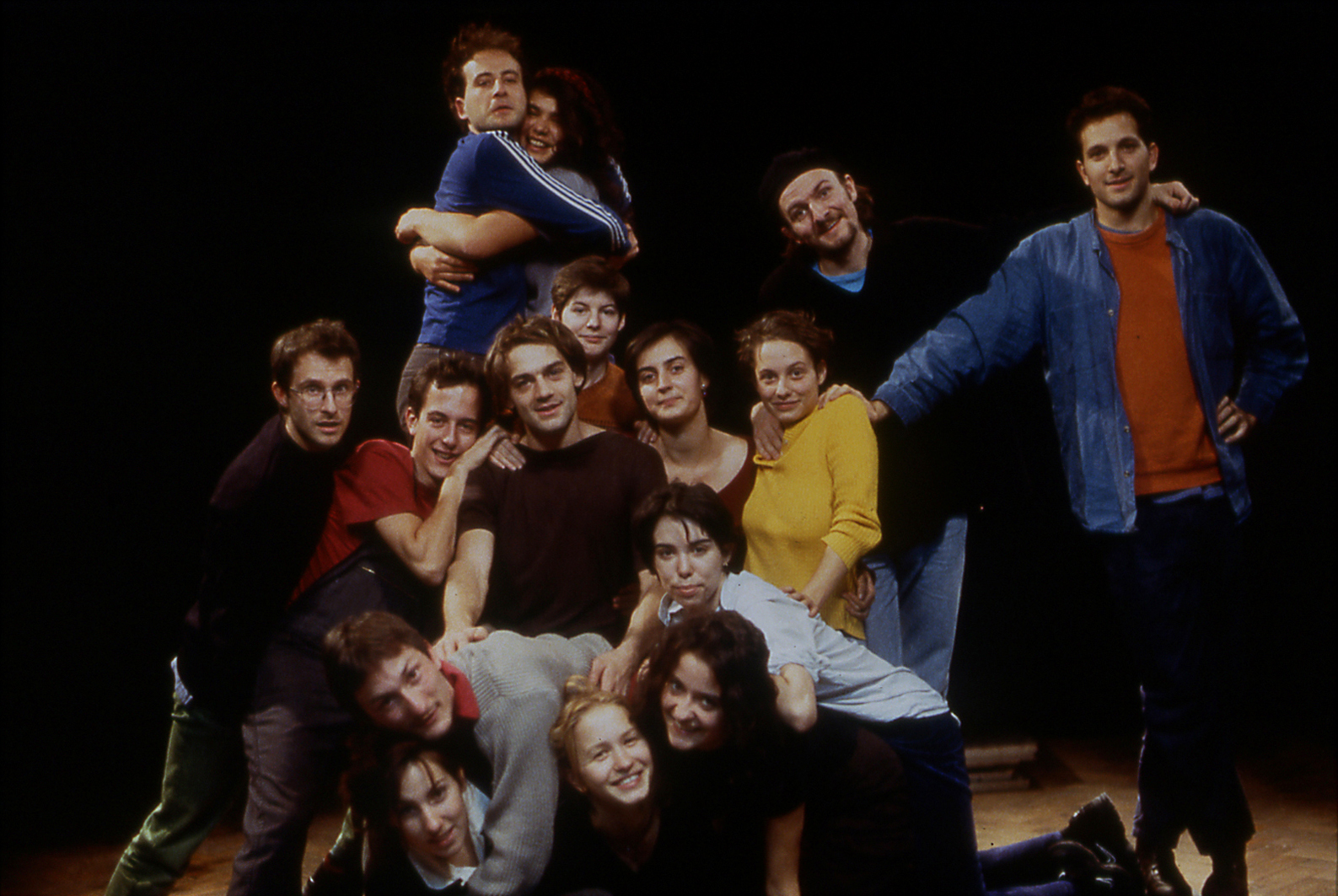
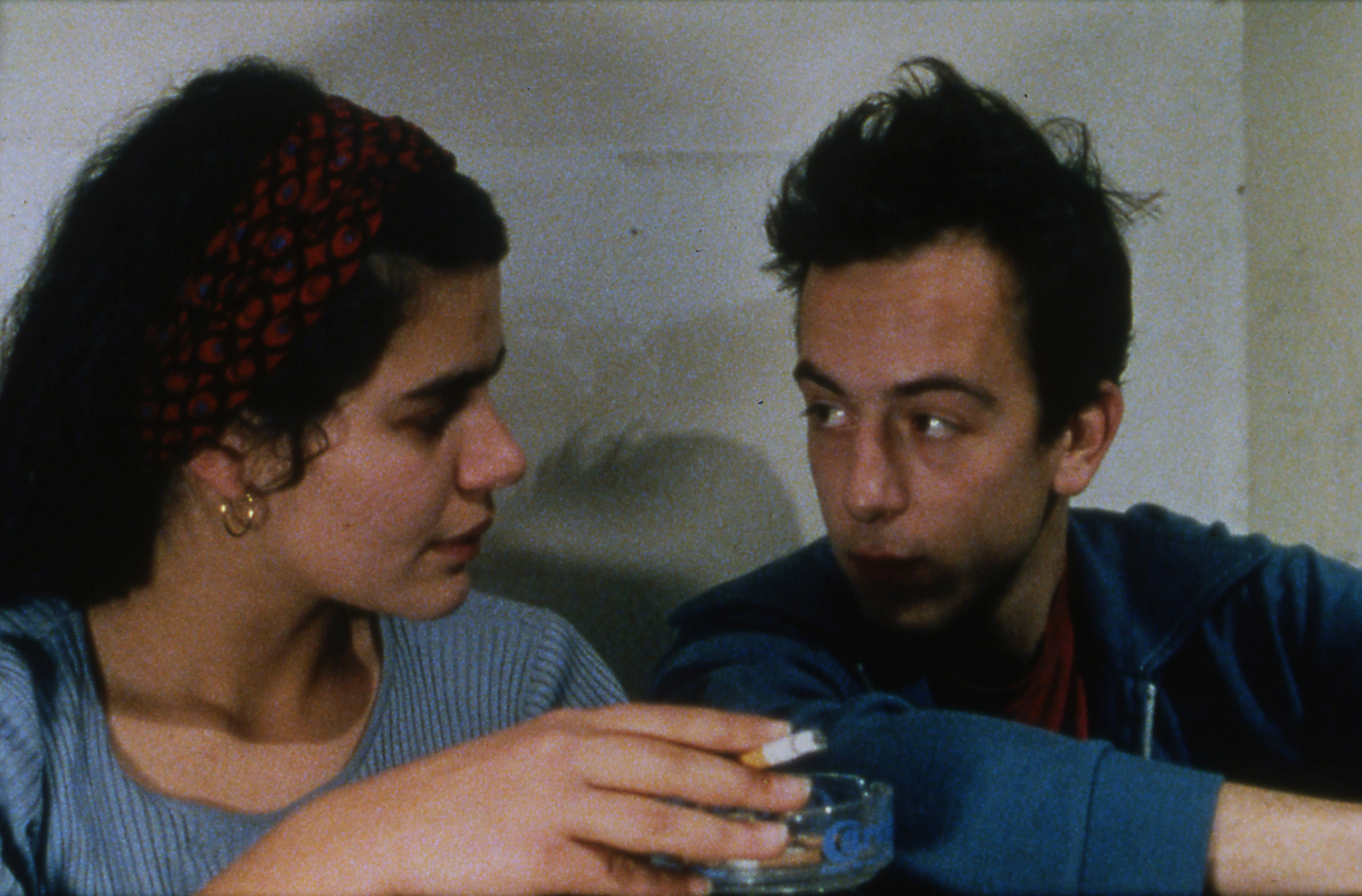
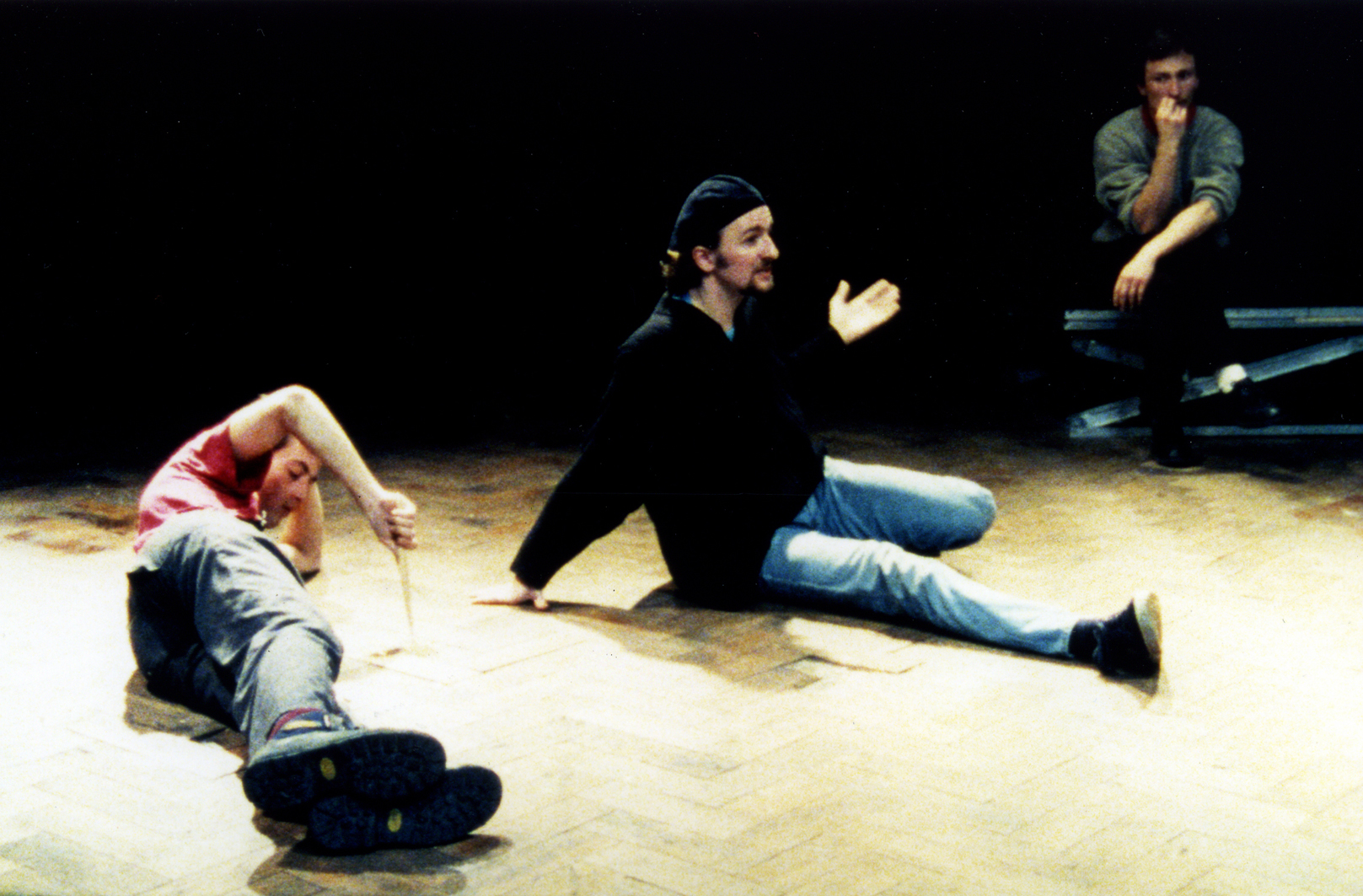
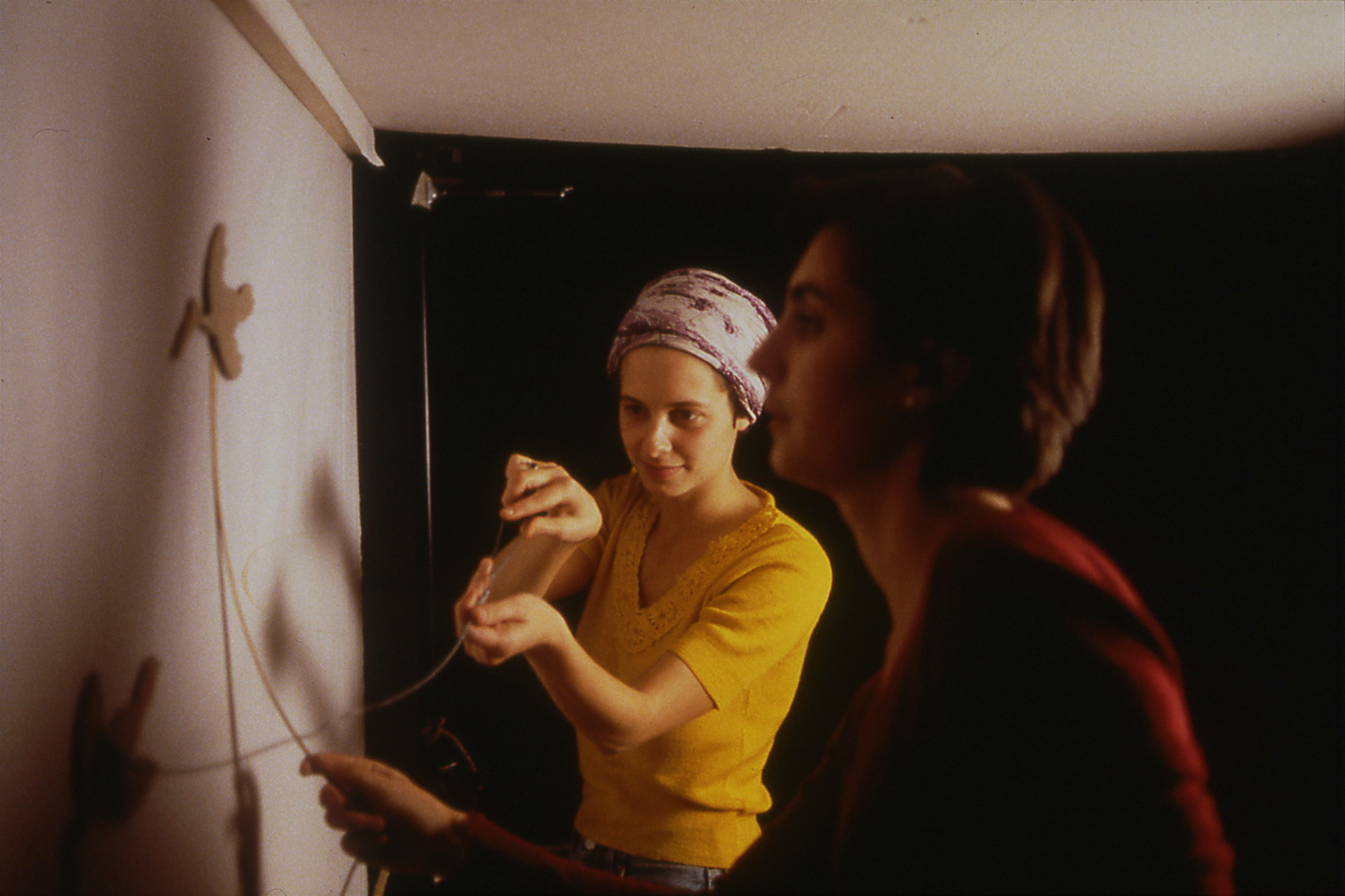
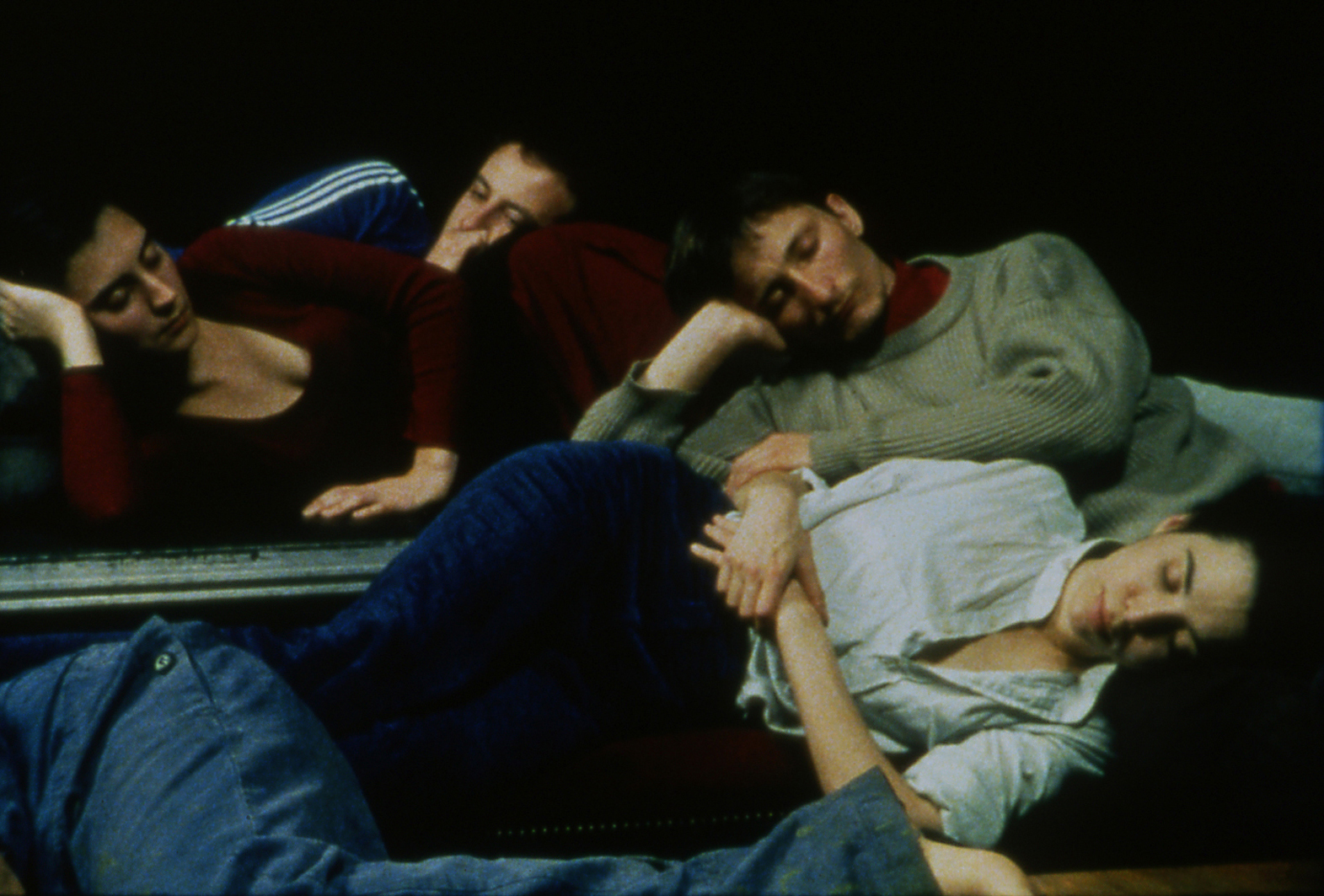
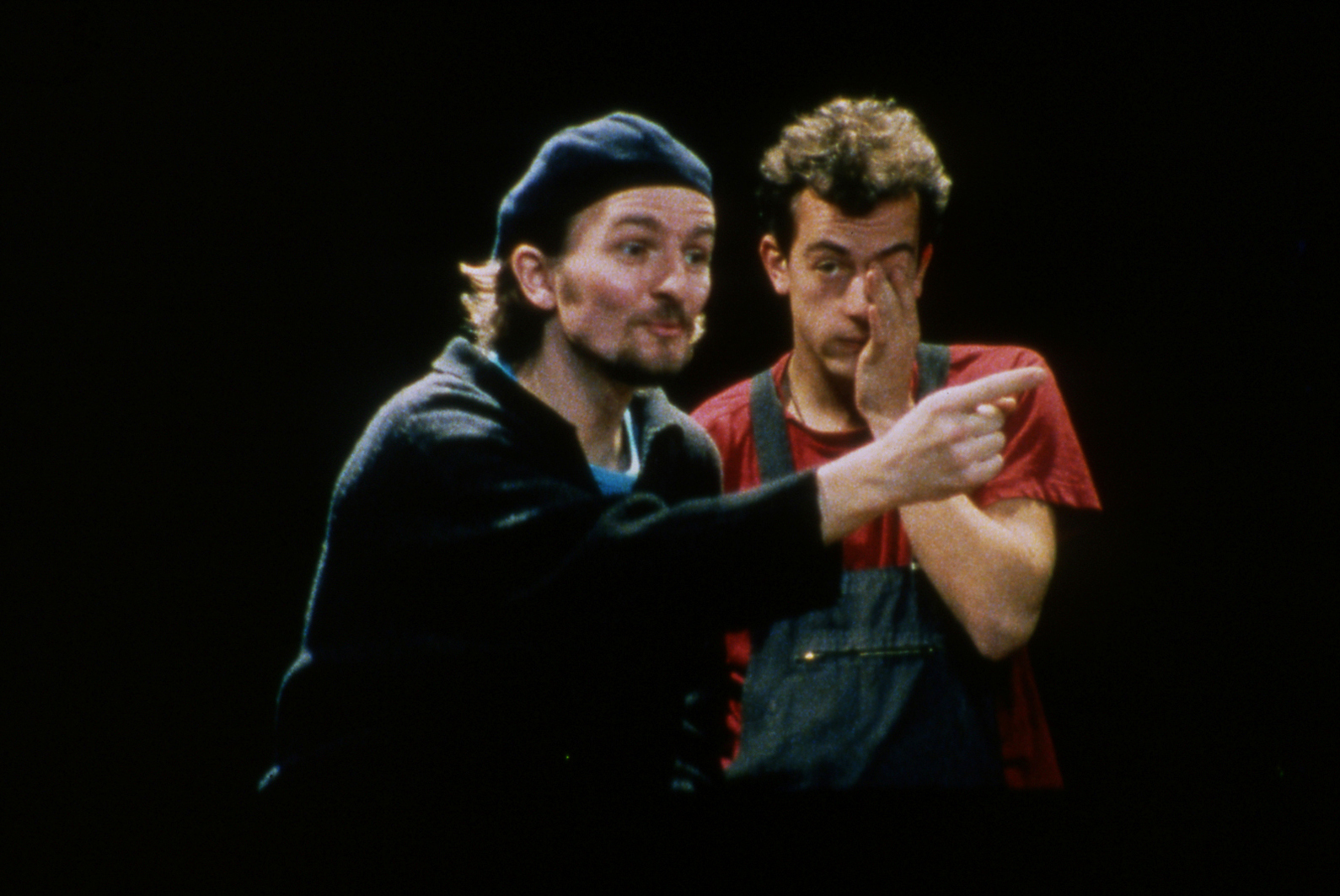
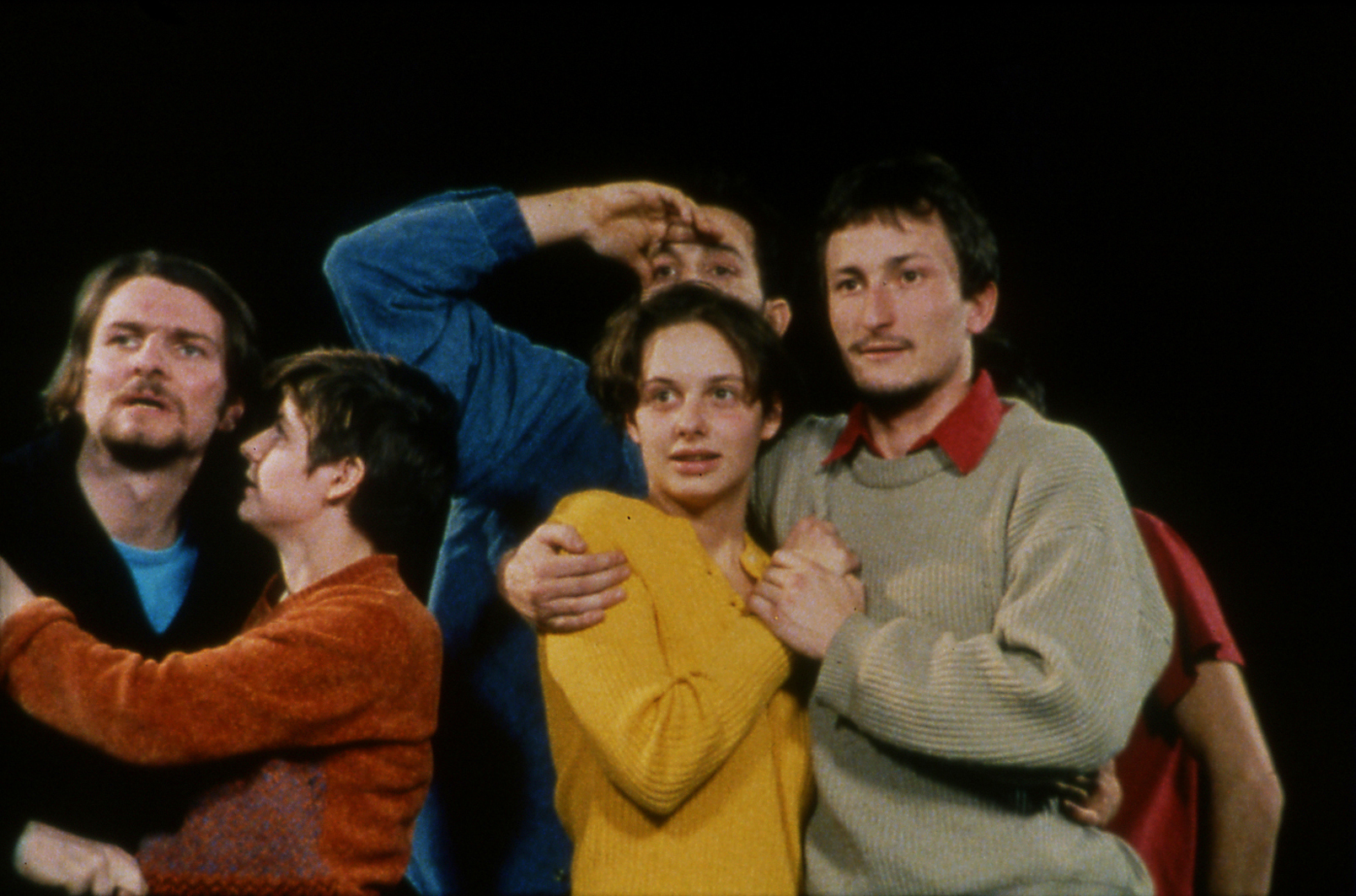
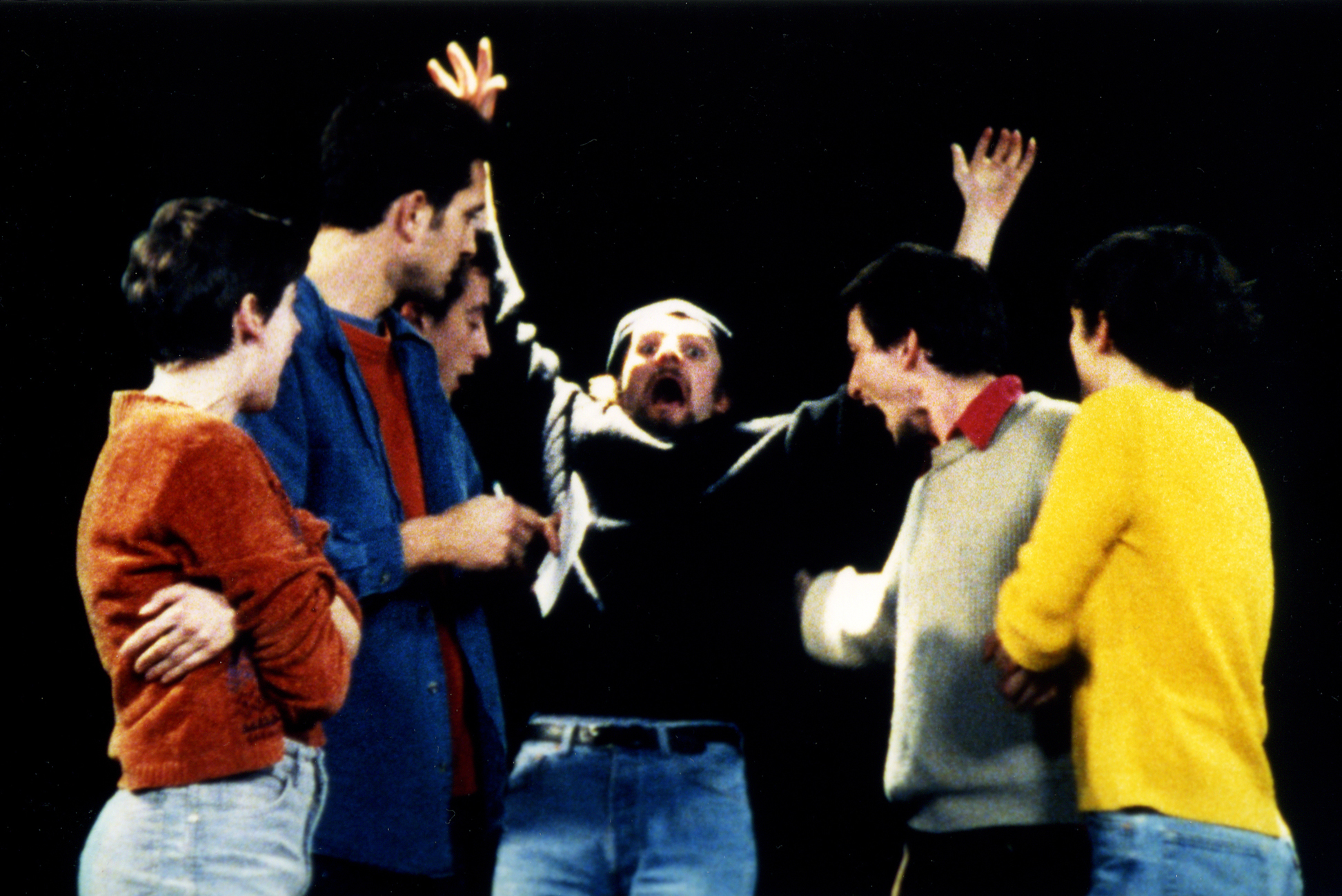
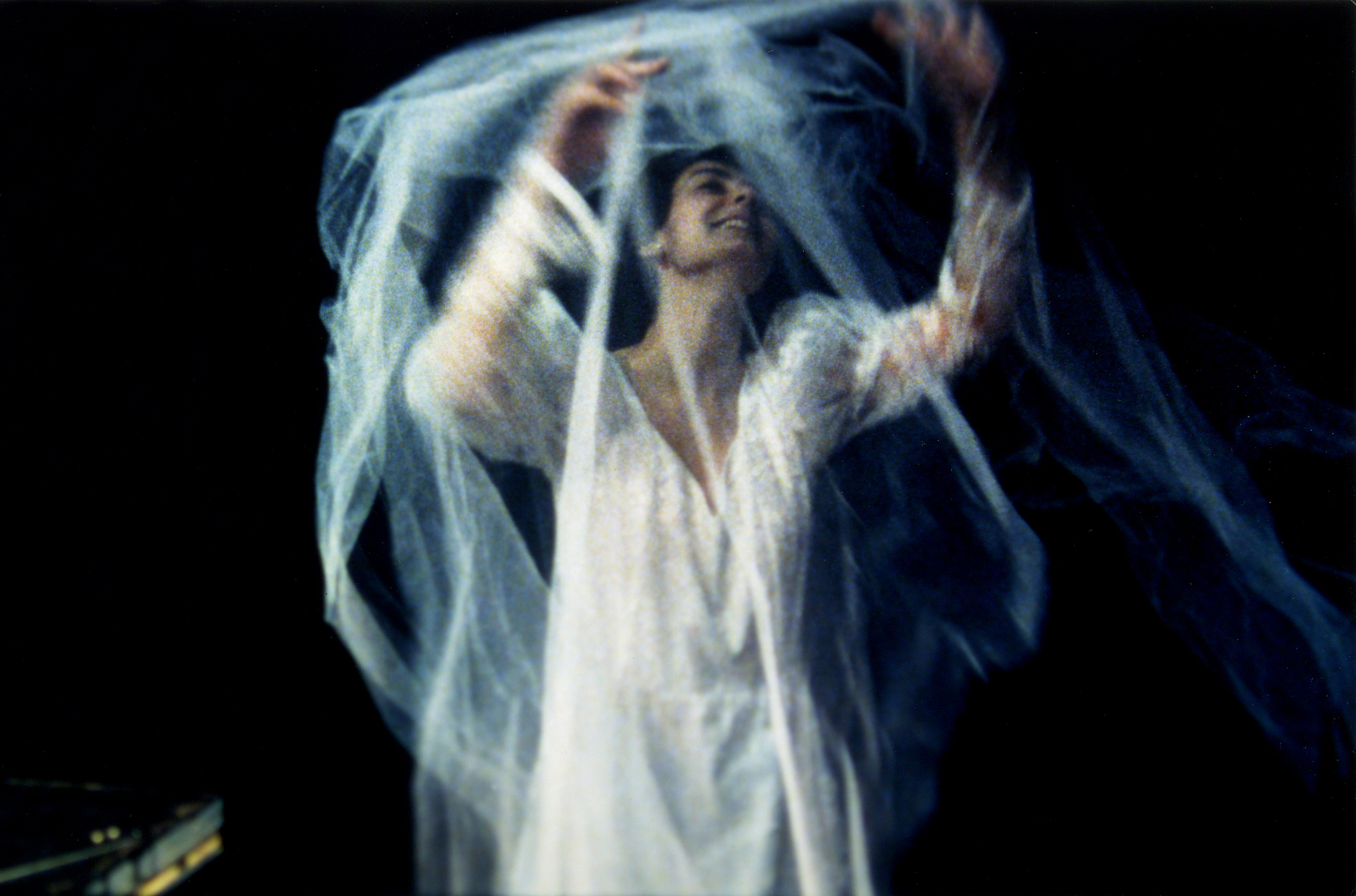
Le Monde - September 2, 1999
“… The film begins, on a winter evening, with the actors’ arrival in the decommissioned military hut that the TNS (1) is using while its premises are being renovated. The story is that of a night during which the students will present to each other the results of their investigations in Strasbourg and try to make them into a show. This night – recreated by and for the cinema, of course, a dreamed night, intercut with arguments, fits of laughter, magnificent or outlandish ideas, empty moments, divisions and reunions – forms the film’s screenplay.
This screenplay doesn’t tell the story of class 30 of the TNS, the “subject” of the film, nor that of Strasbourg, “subject” of the students’ fifteen investigations, but the story of democracy. The story of “how we do something together”. From the creation of a collective group – bodies, words and imagination. Singing and dancing, food and sleep also have their role to play in it. Rituals too. It gradually falls into place, not at all with the flat symbolism of a demonstration but by building up singular and different characters.
We’re still close enough to the stage to think of Brecht in this parable of the community that, beneath its raw documentary aspects, leaves enough room for everyone’s inventiveness (including the director’s) to escape the hellish paradox of this commission: without ignoring the obligation to show each student “equally”, the internal dynamics of this night offer each one of them a place. They are not equal, they are unique and respected as such by the film. Nicolas Philibert’s great talent and his great respect for people – those he films and those who watch his film – have enabled him to model this imaginary object from the stuff of reality with its light, merry and moving forms, baptised Qui sait? ”
Aden - September 2, 1999
“They’re used to having lines, a thread to follow, a master. Still fragile, the young students at the Strasbourg National Theatre were therefore a little confused when Nicolas Philibert arrived among them because, as with In the Land of the Deaf or with the inmates in Every Little Thing, the filmmaker was empty-handed. He asked them to take a fresh look at their city. And to come back with an idea, a sound, an image, a memory… In short, a pretext to perform together. Thrown into the real world, with everything that may seem violent and “clichéd” about it, these young apprentice actors could have been out of their depth. They are surprisingly spot on. The director has managed to destabilize them without any sadism and give them a proud fragility. And so, before our eyes, an approach to reality is built up that calls to mind the research of numerous contemporary visual artists. Involuntarily, Philibert has overturned a world and transformed this group of students into a shimmering constellation, full of promises and hope in the future. That of the theatre and of each one of them.”
Etudes magazine - 2 septembre 1999
“Unity of place and time with a minimal plot: at school, one night, the students – actors and stage designers – gather together to fine-tune the basics of a show on Strasbourg. Discussions, moments of silence, asides and diversions, confrontations, looks, music, living tableaux, puppets, small shapes in which bits of the show are sketched out. Moments of grace, boredom, flight or rest, the wager is taken to shoot live to capture everything, to record the time spent searching throughout the night, time that leads to tiredness, obscurity and things that escape all that: the sparkling light of a look, the revelation of a voice, the freshness of an improvisation. The film focuses on trust, tenderness and lightness, on things that are spoken about in passing… And so it will be a question of storks, Delteil (2), marriage, concentration camps, truth and commitment. There will be accordion music, dancing, singing, smiles, sulking and the lively, full laughter of Mounia that bursts forth and imposes itself, without crushing or cracking the warm cohesion of the group. For, at the end of the film, this is what comes forth: a rational intimacy, an attentive ear; a passion shared and this examination of the word “together” that culminates discreetly and magnificently in the final scene of sleep, waking and joy.”
(1) TNS: Théâtre National de Strasbourg
(2) Joseph Delteil (1894-1978): poet, essayist, novelist, author of around forty books, an original and anti-conformist figure in French literature.
Revue Etudes - Septembre 1999
« Unité de lieu, de temps, et une trame minimale : à l’école, une nuit, les élèves -comédiens et scénographes – se réunissent pour mettre au point les bases d’un spectacle sur Strasbourg. Discussions, silences, apartés et détours, affrontements, regards, musique, tableaux vivants, marionnettes, petites formes où s’ébauchent des bouts de spectacles. Moments de grâce, d’ennui, d’envol ou de repos, le parti est pris de tourner sur le vif, de tout prendre, d’enregistrer le temps de la recherche et de la nuit, le temps de la fatigue, l’obscurité, comme ce qui échappe : la pétillance d’un regard, la révélation d’une voix, la fraîcheur d’une improvisation. C’est le parti de la confiance, de la tendresse et de la légèreté, celui des choses qui se disent en passant… C’est ainsi qu’il sera question de cigognes, de Delteil (1), de mariage, de camps de concentration, de vérité et d’engagement. Il y aura de l’accordéon, des danses, des chants, des sourires, des bouderies, et le rire vif et plein de Mounia qui éclate et s’impose, sans écraser pourtant ni fissurer la cohésion chaleureuse du groupe. Car, au terme du film, c’est cela qui s’épanouit : une juste intimité, une écoute attentive; une passion partagée et cette déclinaison du mot “ ensemble ” qui culmine très discrètement et très magnifiquement dans la scène finale de sommeil, d’éveil, et de joie. »
(1) Joseph Delteil (1894-1978) : poète, essayiste, romancier, auteur d’une quarantaine de livres, figure originale et anticonformiste de la littérature française.